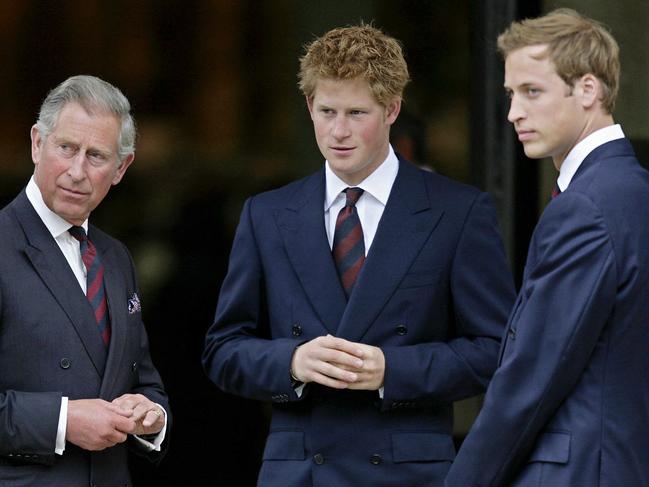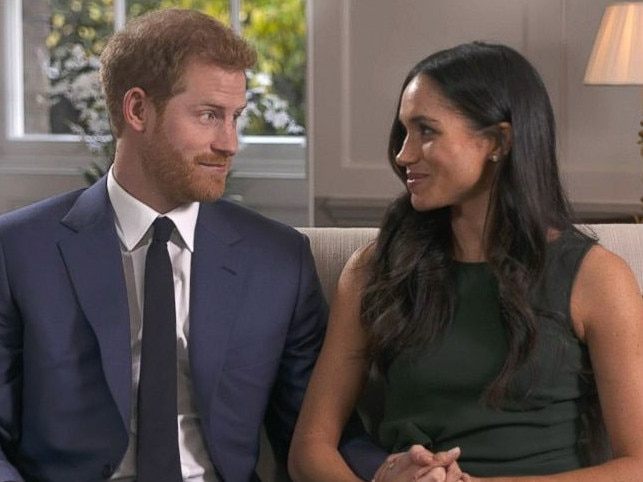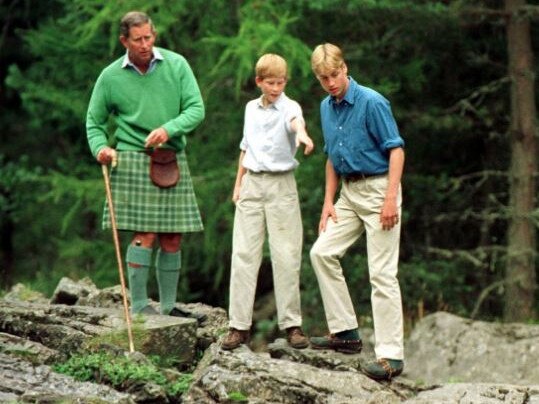Angela Mollard: Generation TikTok blowing up their genuine, imperfect relationships
If Meghan Markle, and her Prince Harry, are trailblazers for TikTok and “speaking your truth” they’re also the most high-profile faces of family rupture, writes Angela Mollard.
Opinion
Don't miss out on the headlines from Opinion. Followed categories will be added to My News.
When my friend Jessica stopped calling her mother “mum” I knew something was wrong.
A little later she took to calling her by her Christian name, Lesley. It led me to ask if everything was OK.
It wasn’t. Jessica was furious. About a lot of things.
Her mum apparently doted on Jessica’s sister’s children but showed little interest in her young son.
Lesley was also “obsessed” with her new partner and kept making negative comments about her former husband, Jessica’s dad.
As Jessica told me: “Lesley is so toxic. I’m trying to decide whether to set boundaries or cut her out of my life completely.”

Jessica is 34 and she’s agreed I can mention her situation on the proviso I use pseudonyms. She fears being attacked as a whingeing Millennial but knows she feels better when she doesn’t see her mum.
She’s also aware of the growing incidence of family estrangement and says it’s hard not to be influenced by TikTok videos where others share how much better they feel after cutting off a family member.
I’m no psychologist but I’m seeing these relationship breakdowns everywhere.
Research shows 1 in 25 Australians are estranged from their families and numbers are growing.
The conflict in romantic relationships is much chronicled in real life, books and films but breakdowns between parents and children, long-time friends, and siblings is an uncomfortable and stigmatised phenomenon.
Some experts say it’s an epidemic driven by a generation citing mental health as the reason for cutting people out of the lives.
Others lay the blame at a lack of tolerance and willingness to understand others’ values and points of view.

As for therapy and TikTok, they’re either enablers egging the hurt and damaged to ditch their loved ones or powerful tools which encourage the naming of feelings and self-preservation. There’s even a language on social media and online forums to refer to levels of estrangement from Low Contact (LC) to Very Low Contact (VLC) and No Contact (NC).
If Prince Harry and his wife are VLCs and trailblazers for “speaking your truth” they’re also the most high-profile face of family rupture.
More than three years after the couple gave their startling interview to Oprah Winfrey citing that the royal family was racist, Harry was still talking about “the rift” last week.
There are plenty of others. Shiloh Jolie-Pitt has gone to court to drop Pitt from her surname, further proof of estrangement from her father Brad, while Suri Cruise has reportedly not seen her dad Tom for years.
Jennifer Aniston cut her mother out of her life after she released a memoir detailing their difficult relationship, and singer Adele has talked about being estranged from her dad for many years before reconciling with him shortly before his death.
But it’s not just families that are splintering.

An old girlfriend told me she was astounded when her friend openly dumped her after a decade of friendship.
“It wasn’t just that she texted me saying she didn’t believe we were on the same path, it was the language she used,” she told me.
“She said she was listening to her body and needed to set boundaries and lean into self-care. Fair enough but surely a decade of being in each other’s lives warranted some discussion?”
Of course, there are plenty who need to step away from familial relationships and friendships to survive abuse, neglect and downright nastiness.
But what about those so intent on “honouring my own needs” and “setting boundaries” that they forget others’ needs or fail to consider what happens on the other side of their boundary?
Has therapy made us so “me-centric” that we forget that genuine relationships are sometimes imperfect and uncomfortable and require empathy, kindness, compromise and a willingness to try to understand another’s position?
I have a friend who has always felt let down by her dad, a man who was poorly parented himself and likely on the autism spectrum.
She felt so disappointed she considered cutting contact but decided to reframe their relationship.
“I now regard him as someone who is emotionally incapable of closeness rather than deliberately distant,” she says. “When he’s thoughtless, I just think that’s dad being dad.”
I wish the royals would sit down with a mediator.
Harry and Meghan are clearly reactive and happy to blow up a relationship rather than find a path to harmony – qualities that don’t bode well for their own marriage.
But I also believe parents are always parents and need to be open to conversation without being defensive.
This week the King published a refreshed set of values designed to guide the royal family. Among them were the promise to “stay curious”, “lead by example” and “succeed together”. It’s admirable but what if Charles employed his own guidelines and invited William and Harry to spend an hour with him?
Each could speak for 15 minutes about what they’re most aggrieved about, and then the others could reflect back what they’ve heard.
It’s not a solution, but it’s a step towards understanding. And that’s where real healing, not the TikTok variety, begins.




